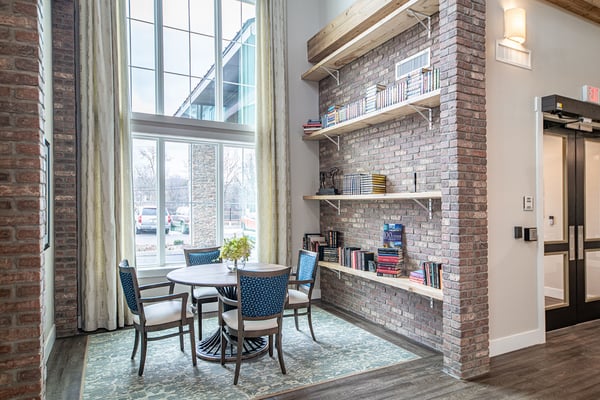Let's Explore Our Floor Plans & Pricing
#open-popup__reveal-pricing-form - Editor Preview
Comforts & Conveniences
Exclusive Lifestyle Programs
The all-inclusive six (6) exclusive lifestyle programs at Cloverland Park set the stage for exceptional senior living each and every day in Brentwood, TN.

Everyone enjoys chef-prepared, resident inspired meals developed with an emphasis on heart health at Cloverland Park. Plus, we also offer all-day dining and Sunday Brunch!

Join us for birthday parties, off-site excursions, exercise classes, happy hours, water aerobics, and so much more! Our fulltime activities director makes sure every day is packed with opportunity.

Staying fit is about being in a healthy state physically and mentally. We prioritize medical, social, physical, intellectual, emotional, and spiritual wellness at Cloverland Park to give residents everything they need to feel great.
Amenities Include:
- Bistro
- Library
- Game and Activity Room
- Movie Theater/Chapel
- Fitness Center
- Beauty Salon/Barber Shop
- All-Season Screened-in Pavilion
- Fire Pit
- Pergola Patio
- Putting Green
- Outdoor Courtyard
- Walking Trails
- Dog Park
Walkthrough Tour
Reach Out to Cloverland Park
It's time to experience the best years of your life. Let us help you make the most of post-retirement living. Schedule a tour of Cloverland Park today!

.png?length=600&name=ALL-0279-Slider_TDM%20Podcast_July%2020205_1200%20x%201000%201%20(1).png)




























